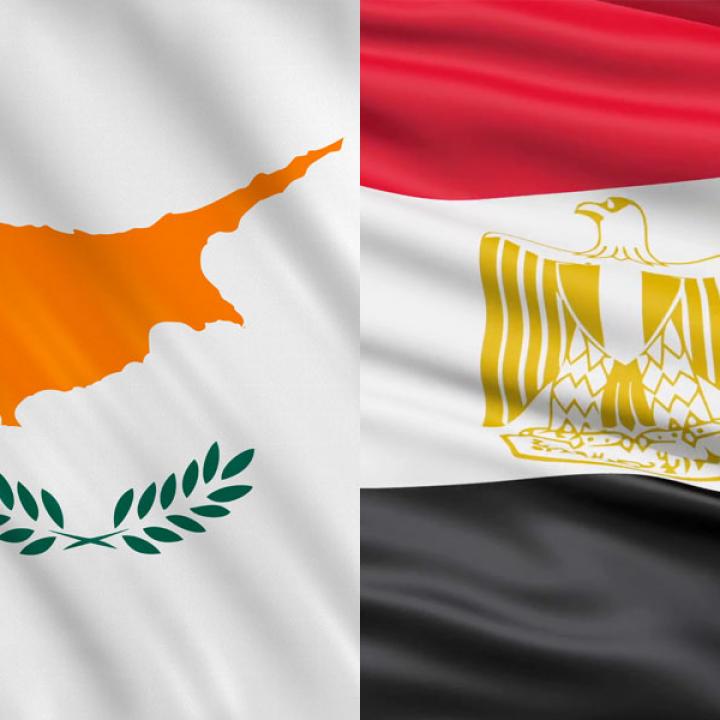

A new pipeline agreement will further establish Egypt as the energy hub of the Eastern Mediterranean.
During a September 19 meeting in Nicosia, the energy ministers of Egypt and Cyprus agreed to set up a committee within thirty days to work out details for an undersea pipeline connecting the offshore Aphrodite natural gas field with an Egyptian liquefaction plant. In an apparent bid to win European Union backing, Cypriot minister George Lakkotrypis stated, “We are essentially talking about a European pipeline, intended to transport Cypriot natural gas to Egypt for re-export to Europe in the form of liquefied natural gas.” In reality, tankers could transport these LNG exports anywhere in the world.
The proposal is the most commercially logical way of exploiting the Aphrodite field, which lies in water more than 6,000 feet deep about 100 miles from the southern coast of Cyprus. The gas was discovered in 2011 by the U.S. firm Noble Energy, which also found Israel’s offshore fields. The apparent intention is to link it by pipeline with the network servicing Egypt’s giant Zohr offshore field, discovered in 2015 and already producing gas in significant quantities.
Noble is also in talks with Egyptian companies to transfer excess gas from Israel’s offshore Leviathan field via pipeline across northern Sinai. The Egyptians would then convert it to LNG and sell it internationally.
Cairo is already the main gas player in the Eastern Mediterranean by virtue of its large reserves and production capacity. Its ace in the hole is two coastal LNG plants, which have been largely idle in recent years because of soaring domestic demand and political chaos. Israel’s gas potential is deemed smaller than Egypt’s, and efforts to develop it have been limited—some would say hampered—by domestic political opposition and regulation.
The initial challenge to exploiting Aphrodite is financial. Noble and its partners on the project, Royal Dutch Shell and Delek of Israel, must first raise funds to cover the cost of developing the field. They recently began renegotiating with Cyprus to make the contract more profitable for them. The planned pipeline connection to Egypt is an additional expense.
The main political challenge could come from Turkey, which argues that revenue from Cypriot gas sales should benefit all of the island’s citizens, including those in the so-called Turkish Republic of Northern Cyprus, set up after Turkey’s 1974 military intervention. Although Nicosia has accepted this argument, President Recep Tayyip Erdogan still delivered an ominous warning earlier this month when he declared that more Turkish troops would be deployed there. And in February, Turkish warships prevented an Italian-contracted drilling ship from operating in southeastern waters that form part of the island’s exclusive economic zone.
If these obstacles are surmounted, the Egyptian route would enable Cyprus to set aside less favorable options such as building its own LNG plant at great expense or exporting gas via pipeline to Turkey. In addition, a new field named Calypso was discovered west of Aphrodite this January, though it needs more appraisal drilling before its commercial prospects can be ascertained. Eni of Italy and ExxonMobil have committed to drill several other exploratory wells before 2020.
These developments reflect Washington’s quiet efforts to encourage and link Eastern Mediterranean energy initiatives among its regional allies. Cyprus is seeking European backing as well, using its EU membership as leverage. Turkey is necessarily part of these discussions, but it should not be allowed to play a spoiling role.
Simon Henderson is the Baker Fellow and director of the Bernstein Program on Gulf and Energy Policy at The Washington Institute.



